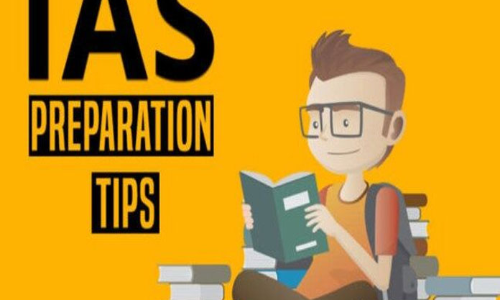Live
- Allu Arjun Seeks Lunch Motion; Court Hearing Scheduled for 2 PM Today
- Vijayawada hosts Swarnandhra Vision-2047 Program to foster development in AP
- World Bank okays loan for new project to boost earnings of UP farmers
- Zomato gets GST tax demand notice of Rs 803 crore
- Atul Subhash suicide: No arrests made yet, says Bengaluru Police Commissioner
- Indian agrochemicals sector to see 7-9 pc growth next fiscal: Report
- SC refers to CJI Cong leader’s petition for verification of EVMs used in Haryana polls
- To become the youngest world champion is truly a great feat: Gill congratulates Gukesh
- Case Filed Against Allu Arjun Under Four Sections
- Remembering A Visionary Leader.
Just In

Always believe in healthy competition giving ones best is better than trying to beat the competition Prelims 2019 is around the corner Most aspirants are by now in the preparation mode reading books and newspapers, making notes, taking classes, attempting mock tests and most importantly preparing themselves psychologically for this exam
New Delhi: Always believe in healthy competition: giving one's best is better than trying to beat the competition Prelims 2019 is around the corner. Most aspirants are by now in the preparation mode - reading books and newspapers, making notes, taking classes, attempting mock tests and most importantly preparing themselves psychologically for this exam.
Drishti IAS, which has been one of the foremost UPSC coaching institutes in India since 1999, shares some advice garnered from its years of experience helping thousands of aspirants.
The first place to look, whether one is a beginner or a third attempter, is always the previous year’s question papers. The goal here is to familiarise with the pattern of questions - what the UPSC wants the candidate to know and what information is relevant for this exam. This perspective will assist aspirants whenever they are preparing from any reading material and more importantly will help them overcome doubts regarding what the UPSC might or might not ask from any given topic.
After an aspirant is fairly familiar with the previous year’s pattern of questions, he or she may proceed with covering or revising the NCERT books. If time does not permit a full reading of these books, the aspirant may solve Multiple Choice Questions (MCQs) based on the NCERT books and make notes from the solutions to these questions. The third place where an aspirant must go is the daily newspaper.
Reading a newspaper everyday is very important - it helps with current affairs and general knowledge, with understanding various nuances of any given topic, and most importantly reading the newspaper daily creates and sustains the habit of reading. Three formulas one can follow while preparing for Prelims: Cover as widely as possible - revise regularly what has been covered Maintain a proper balance between memorisation and understanding - both are needed Quality of coverage is more important than the quantity of material covered A question that frequently pops up here is whether to continue preparing the Optional once one has entered the month of March.
There are two ways to look at this. For beginners, or first attempters, the foremost goal should be to clear the Prelims. Clearing the Prelims provides a great boost to a new aspirant's civil service journey. Thus, if preparing the Optional hampers the preparation for Prelims, then beginners should absolutely stop preparing it at once.
However, for those who have already cleared the Prelims in earlier attempts and want to excel in the Mains examination, the advice here is to continue preparing the Optional, giving it at least 10 to 20 per cent of the total preparation time (or writing one answer daily at the least). For such aspirants, dedicating only the months of April and May for Prelims should suffice. Another advice here is to follow a Mock Test Series.
This helps in three ways - first, it instills punctuality or a routine in those who are in need of it; second, if the mock tests are taken in the classroom, it helps in simulating what the actual exam could be like; finally, well developed mock test papers cover topics very closely to what might be asked in the Prelims and therefore attempting them could actually better the chances of getting answers correct on the day of exam.
In conclusion, focus on three very important points. One is to cut down on screen time - phones, TVs, computers - use these as far as possible, only to prepare for the exam. The next is to learn how to unitask - doing one thing at a time with full concentration is better for this exam. The last point here is perhaps the most important - learning to enjoy the process of preparing for the UPSC.
It is well known that if someone enjoys doing something, the rate of success increases exponentially, and for any aspirant who enjoys the process of preparing for the UPSC Civil Service, the probability for success is very high.

© 2024 Hyderabad Media House Limited/The Hans India. All rights reserved. Powered by hocalwire.com







